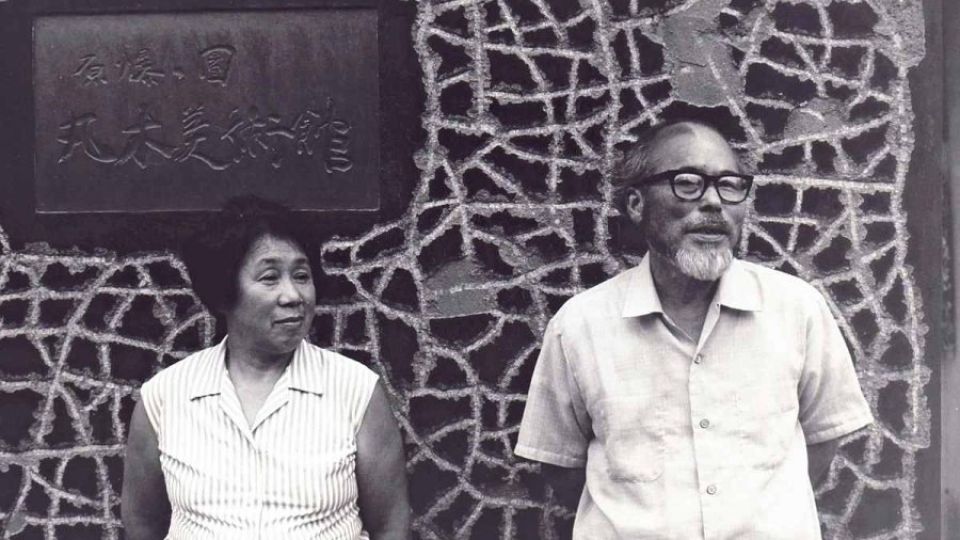October 14, 2024
KAWAGOE – Hopes are rising that more attention will be paid to a couple who created a series of large paintings depicting the aftermath of the atomic bombing of Hiroshima, following the announcement that the Japan Confederation of A- and H-Bomb Sufferers Organization, or Nihon Hidankyo, had won the 2024 Nobel Peace Prize.
Artists Iri Maruki (1901-1995) and his wife Toshi (1912-2000) from Higashi-Matsuyama, Saitama Prefecture, went to Hiroshima immediately after the bombing and were involved in relief efforts for about a month. Based on their experiences, they created “The Hiroshima Panels” comprising 15 sets of painted folding panels.
The couple was recommended for the peace prize in 1995.
The first set of “The Hiroshima Panels” was shown at more than 160 locations in Japan in a traveling exhibition from 1950 to 1953. It has also been exhibited in at least 20 countries, widely conveying the tragedy of the atomic bombings.
Lawrence Wittner, then a professor at the State University of New York, recommended the Marukis for the Nobel Peace Prize in 1995. The leading researcher of the history of the movement to abolish nuclear weapons, Wittner praised the creation as comparable to the antiwar paintings by Francisco Goya and Pablo Picasso, conveying to the viewer the horrors of war.
He praised the couple for taking up the universal theme of peace and expressing it beautifully through their painting.

The Hiroshima Panels (I) “Ghosts” (detail). PHOTO: MARUKO GALLERY FOR THE HIROSHIMA PANELS/THE YOMIURI SHIMBUN
The 1995 Peace Prize was ultimately not awarded to the couple, but Toshi reportedly said it was a great honor for her and her husband even to be recommended.
The first 14 sets of “The Hiroshima Panels” are on permanent display at the Maruki Gallery For The Hiroshima Panels in Higashi-Matsuyama. The 15th set is shown at the Nagasaki Atomic Bomb Museum in Nagasaki.
Maruki Gallery curator Yukinori Okamura, 50, said he hopes that Nihon Hidankyo’s winning the Nobel Peace Prize will lead to a reevaluation of people who have worked to covey the damage caused by the atomic bombings, and of artworks including “The Hiroshima Panels.”

